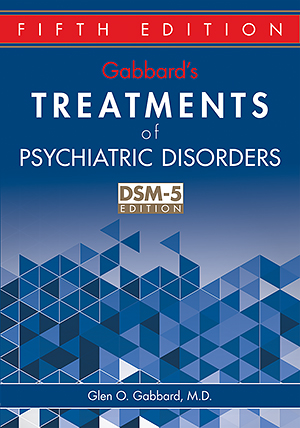Sections
Excerpt
Eating disorders, including anorexia nervosa (AN), bulimia nervosa (BN), and binge-eating disorder (BED), are serious psychiatric illnesses. The morbidity and mortality rates for these disorders are among the highest seen for any psychiatric illness. The serious and complex nature of these illnesses and their associated features have led to the development of psychosocial and medical treatments that utilize a range of treatment settings. Intensive treatments have evolved in efforts to interrupt maladaptive eating and associated behaviors and to manage the medical complications that are commonly present.
Access content
To read the fulltext, please use one of the options below to sign in or purchase access.- Personal login
- Institutional Login
- Sign in via OpenAthens
- Register for access
-
Please login/register if you wish to pair your device and check access availability.
Not a subscriber?
PsychiatryOnline subscription options offer access to the DSM-5 library, books, journals, CME, and patient resources. This all-in-one virtual library provides psychiatrists and mental health professionals with key resources for diagnosis, treatment, research, and professional development.
Need more help? PsychiatryOnline Customer Service may be reached by emailing [email protected] or by calling 800-368-5777 (in the U.S.) or 703-907-7322 (outside the U.S.).



